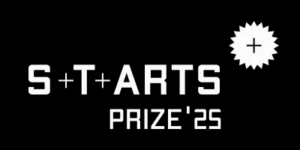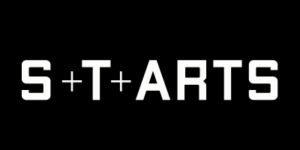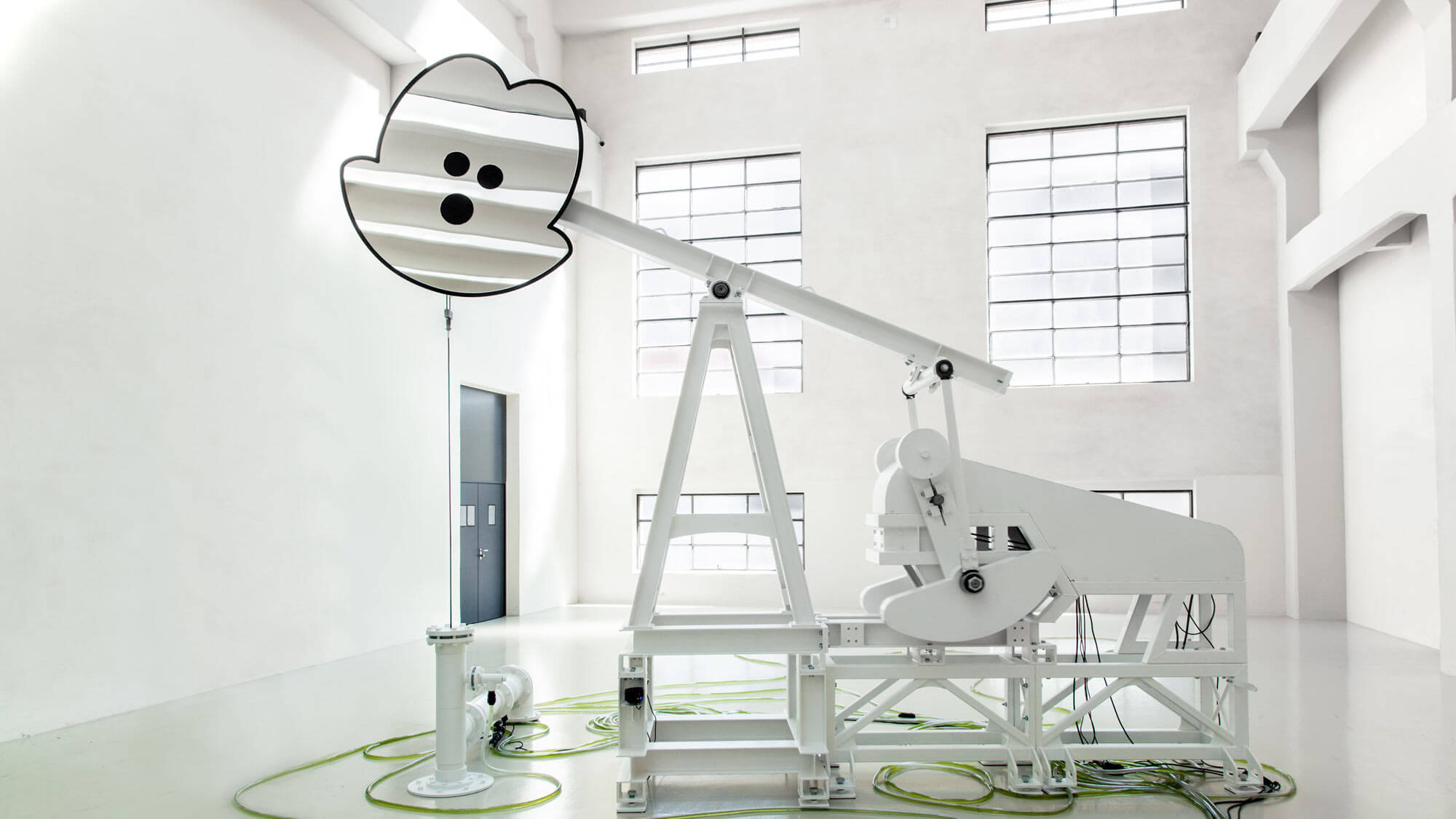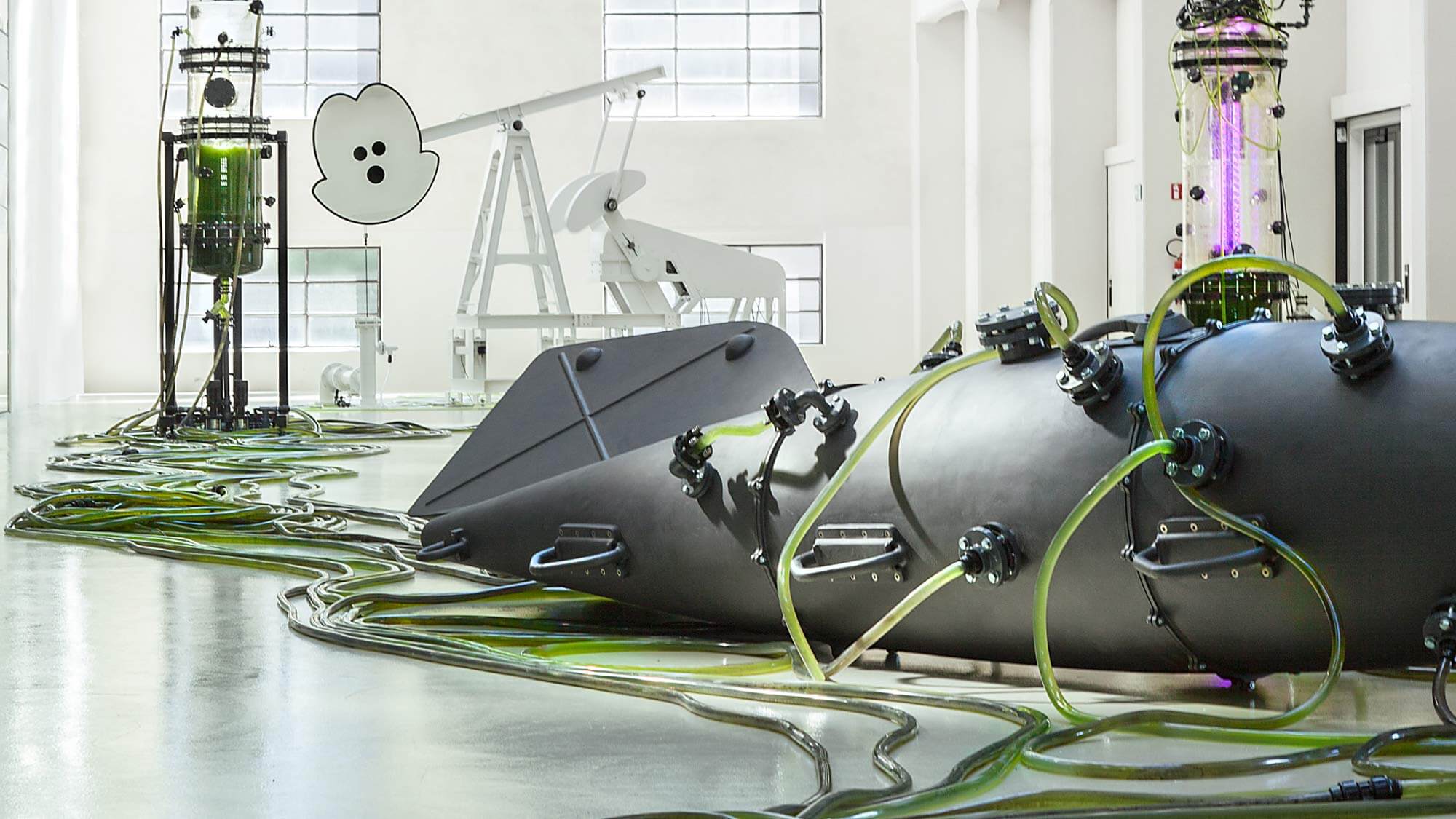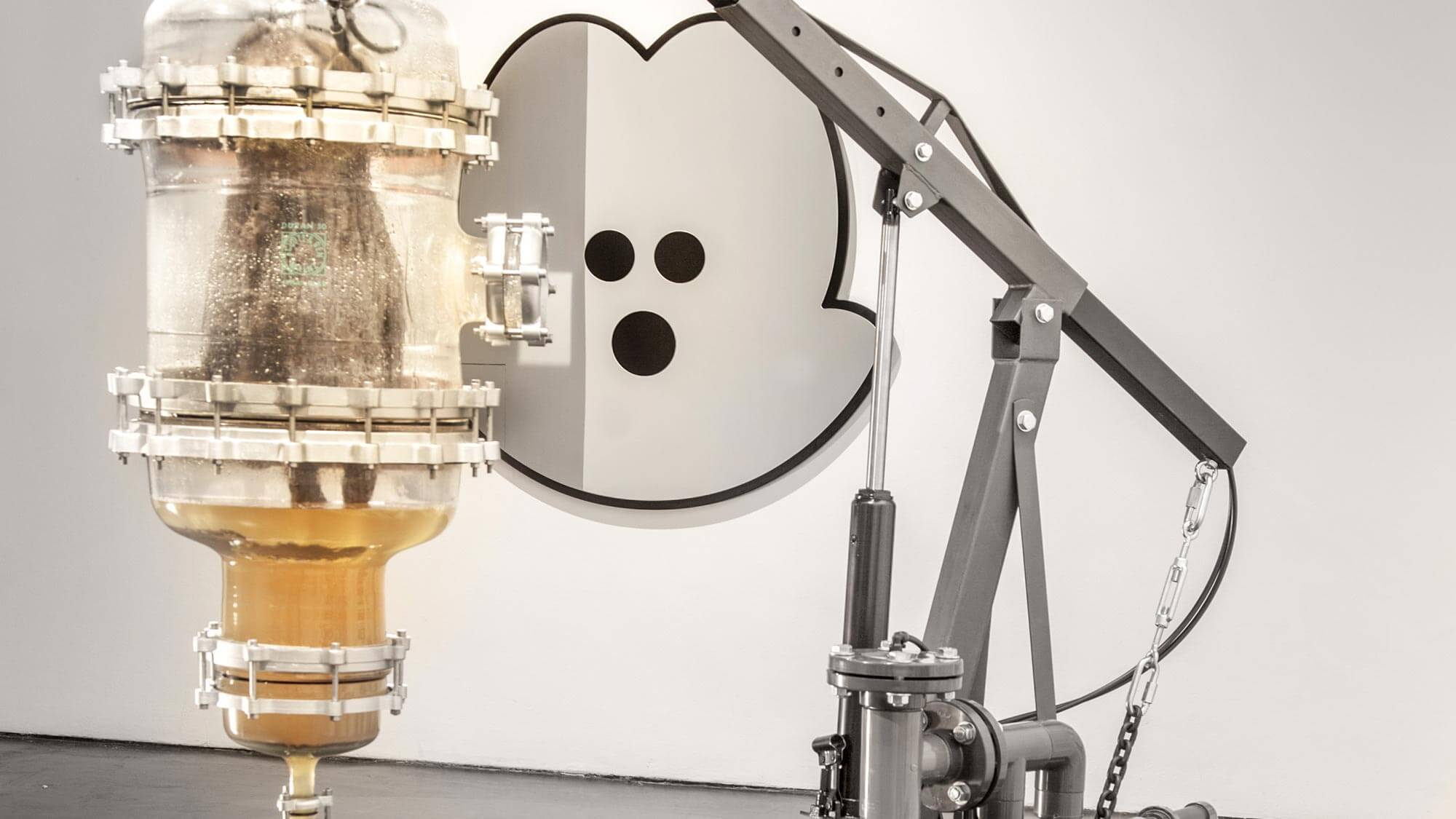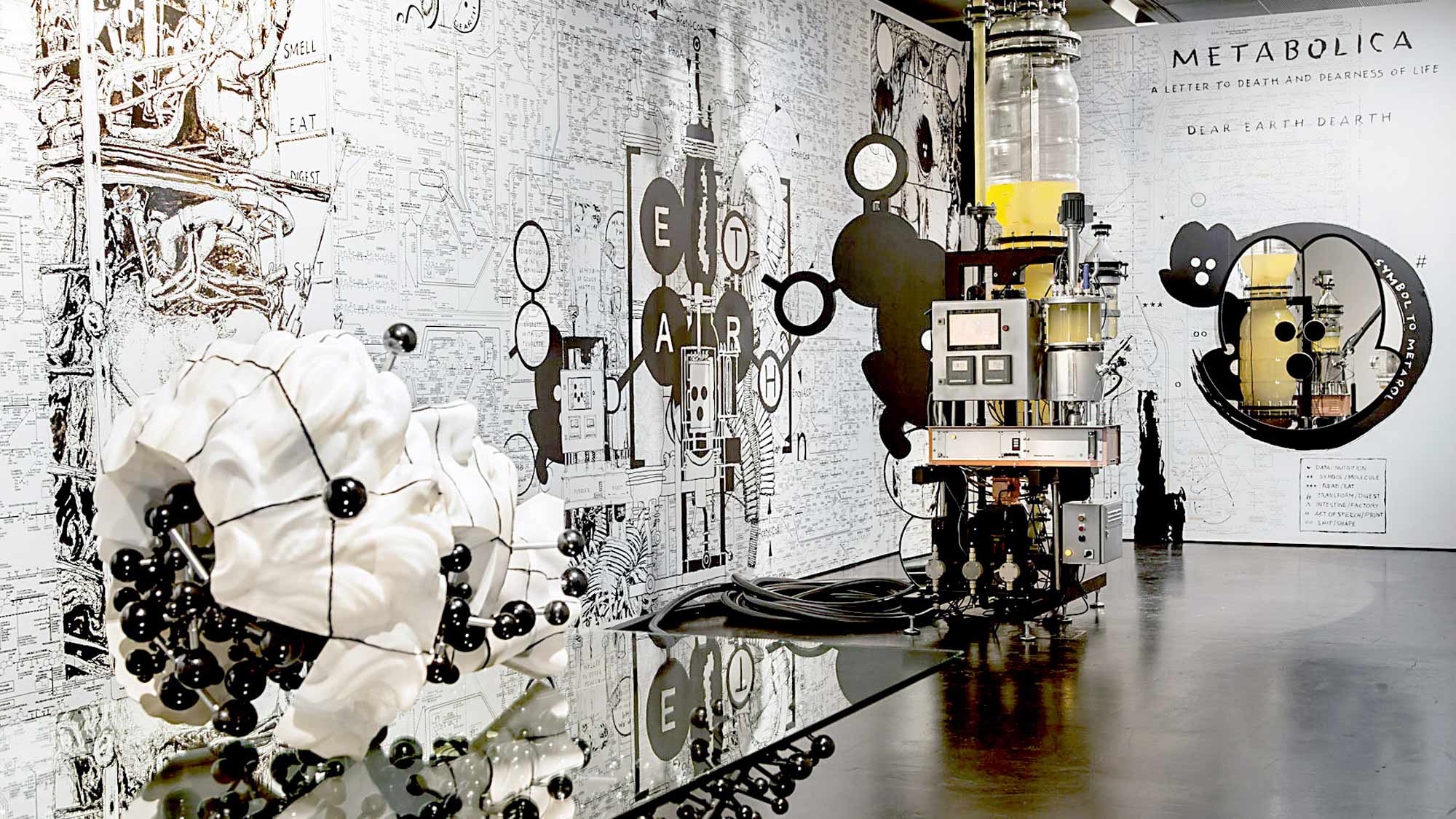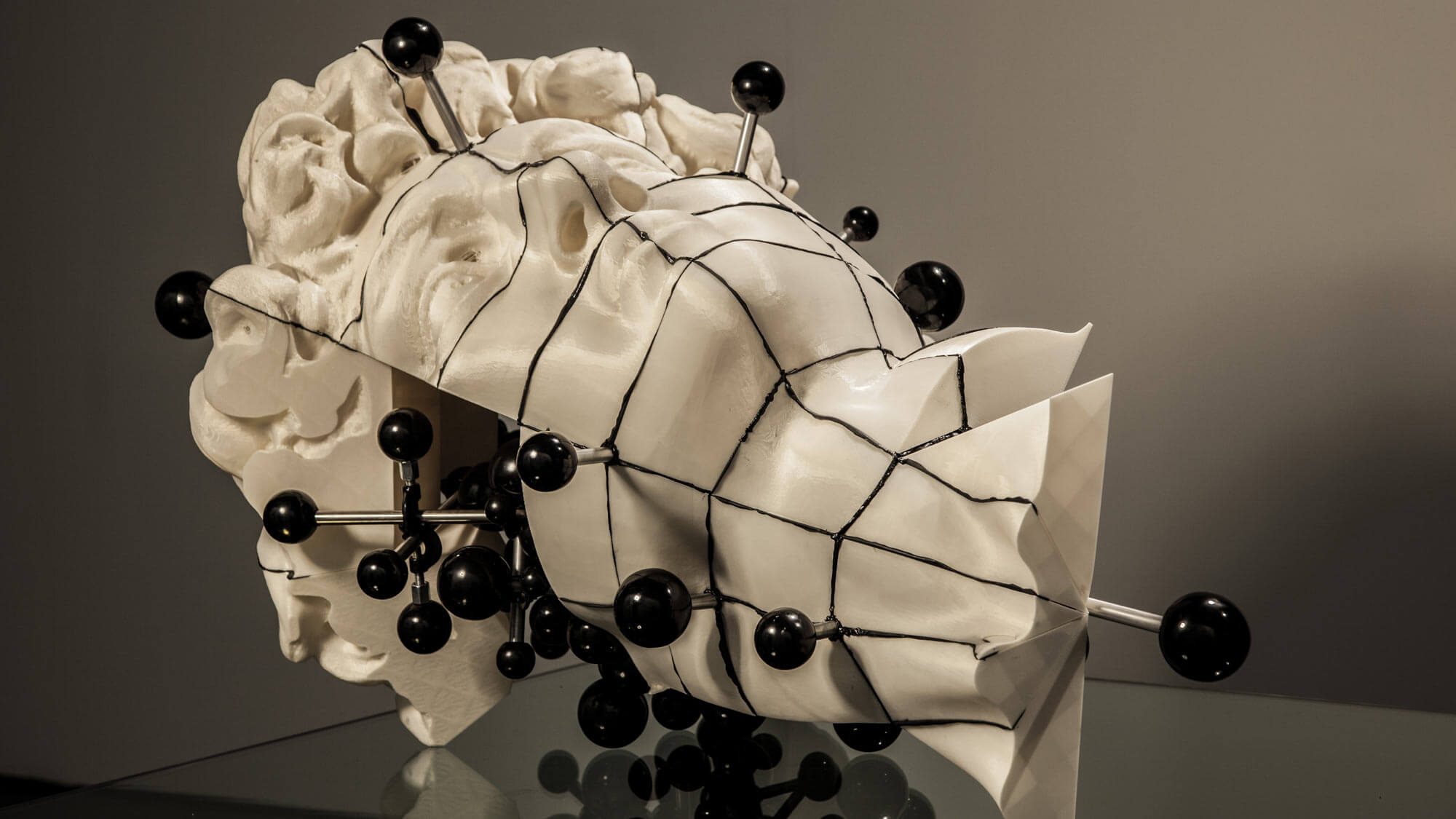Honorary Mention
METABOLICA opens up the factory of life and in five chapters tells a story of change from the industrial revolution to the present and future, from whaling and petromodernity to current and future scenarios of biochemistry. Living organisms such as algae and bacteria become collaborators that lead to a new aesthetic and artistic practice through scientifically developed processes. Bacteria act as artistic actors by metabolizing fatty acids enriched in algae into the material PHB (polyhydroxybutyrate). While the sculptor’s material once came from a quarry such as Carrara and the chisel served as a tool, in METABOLICA it is living organisms. The bacteria act simultaneously as “quarry” and “chisel” by producing a new plastic for sculptures, by digesting them again and changing their shape.
In the sculpture HYDRA, a hybrid of whale, submarine and photobioreactor, green algae (Chlorella vulgaris) grow in an extensive tube system via photosynthesis, which are continuously filtered as if by the baleen of a whale. Constantly pumped to the sculpture FATTY FANTASY, the algae form fatty acids in their cells due to a special diet or the lack of nitrogen in the water, while the sculpture MOBY DICK, a converted oil pump, provides the water cycle. In the bioreactor sculptures MS and MR MOL bacteria (including Cupriavidus necator) convert the fatty acids of the algae into the plastic PHB (polyhydroxybutyrate) whereas in the REFINERY the biomass of the bacteria is separated from the process water of the reactors, purified and dried. The result is a fine powder, processed into sculptures by ANACLE, a 3D printer. The printed sculptures grow like stalactites during printing. The same bacteria act simultaneously as quarry and chisel.
METABOLICA was conceived in 2017 and has been supported by a team of scientists and engineers since 2020. The aim of the research is to use carbon sources from wastewater streams in industrial and sewage treatment plants to produce PHB.
Credits
Artist: Thomas Feuerstein
Biography
Thomas Feuerstein (AT) studied art history and philosophy, gaining his doctorate from Innsbruck University. As a theorizing media artist, he employs a method of “conceptual narration” that combines art, architecture, philosophy, and literature with economics, politics, and technology. Linking linguistic, visual, and material elements and exploring connections between fact and fiction are key aspects of his practice. He creates artworks based on neural networks, biotechnologies, and metabolic processes. Thomas Feuerstein lives in Vienna.
Jury Statement
With METABOLICA, the Austrian artist Thomas Feuerstein tells a story about life cycles that truly involve transdisciplinary processes in nature, economy, politics, art, and science. The core theme and artistic research is about metabolic processes, made from cultivated algae using bacteria and a 3D printer. Feuerstein, who describes himself as a theorizing media artist, generally uses the method of “conceptual narration” in his works, which combines art, architecture, philosophy, and literature with economics, politics, and technology. In five chapters, these complex installation settings tell a story of change from the industrial revolution to the present and future, from whaling and petromodernity to current and future scenarios of biochemistry and wastewater research. The metabolism of microorganisms is a central theme, as not only is a new material for sculptures produced and partially degraded, but new forms and aesthetics are created.
